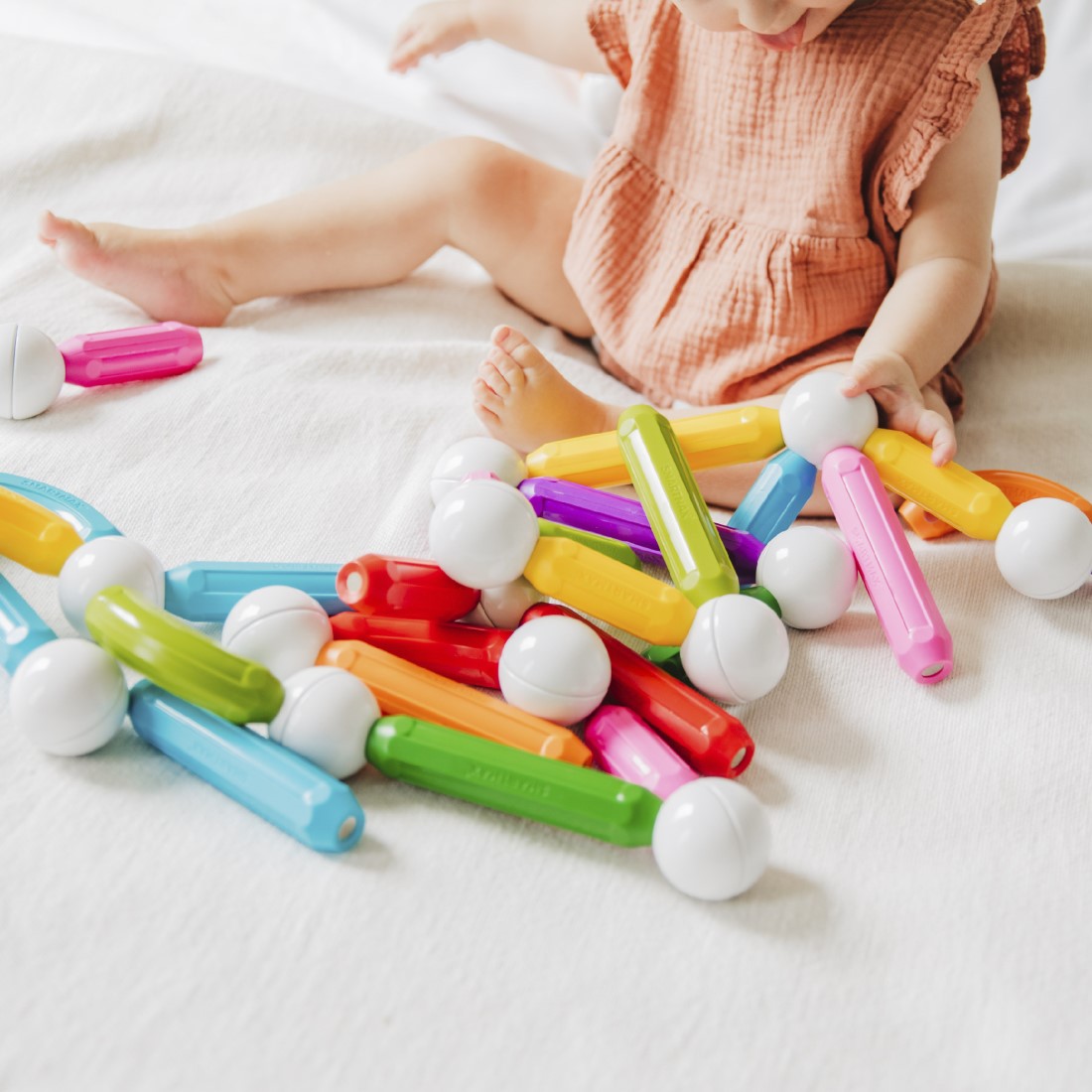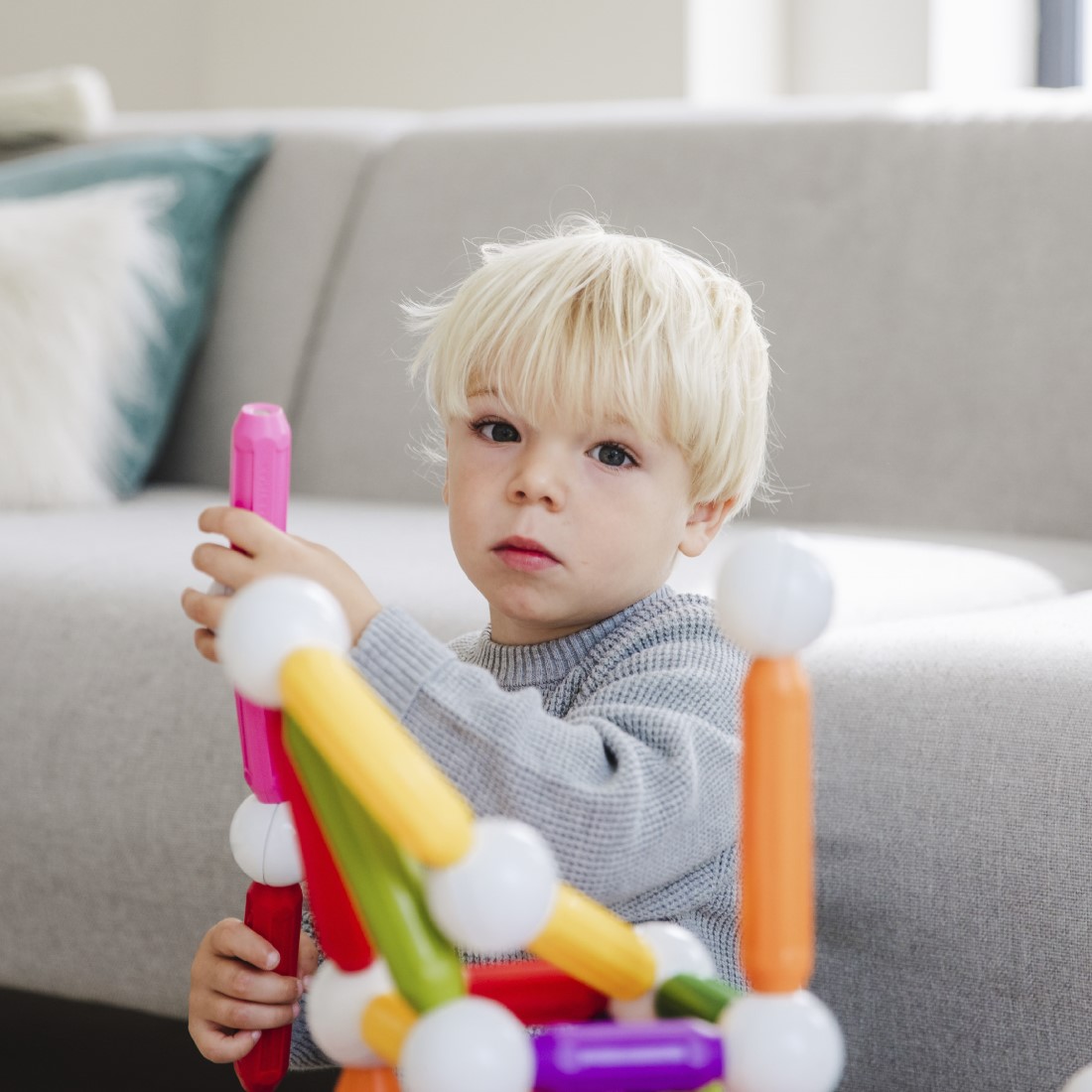For a better future
Did you know that involving kids in small household tasks like for example helping to clean up clutter can have a positive impact on their future? It gives them a sense of competence, self-worth, responsibility, and self-reliance. And it teaches More the reason to educate them from an early age!
Start young!
One of the things the internet gurus are telling us, is to make cleaning up a habit and to teach them from a young age. Goal is to have your little one clean up right after they are one playing without making too much fuzz. You can already teach your nine-year-old month baby by leading by example. When playing with your youngster, explicitly say that you are going to clean up the toys when you are done. Around 18 months you can probe them to help you throw or place SmartMax balls in the bin. They won’t be able at that age to do it autonomically, but it will lay the foundations for cleaning up on a later age.

Designated storage spaces
A great tool that will help your little one clean up their SmartMax toys, is to have dedicated bins, boxes or closets for certain toys. This makes it clear where every little thing goes, helps consistency and aids creating the previously mentioned habit. Adding structure makes it easier and quicker to clean up.
Not to overwhelm
Kids get easily overwhelmed by big tasks. So, if there is a lot of clutter, it might be a good idea to not let them clean up everything at once to avoid stress and reluctance. Divide big tasks into smaller ones and be very specific in your request. For example: ask can you clean up the SmartMax balls instead of can you clean up the room?

Make it fun!
Time to bring out your inner Mary Poppins! Invent together your own clean-up song that you can sing! Or put on a playlist with fun cheerful songs your kid loves to make the chore less tedious. You can also try to throw in a little competition. Set a timer and try to put away all your SmartMax toys in the correct place within the time limit. Kids also like competing against their parents, so if you don’t have a timer at hand, challenge them to clean up their part before yours is done (maybe let them win to motivate them a bit). Another game you can play is a spinoff of ‘I Spy.’ Say: ‘I clean up’ and then add the type of items you select to clean up. For example: I clean up all round items, or I clean up all green things. This also stimulates language development. A final tip to make it more fun, is to pretend-play and have the toys clean up. It will take more time, but it is fun! Load all pearls or small items in a SmartMax Power Vehicle or the My First Animal Train, ride it to the correct bin and let it unload. Or have the SmartMax Elephant clean up.
How do you stimulate your child to help clean up? Let us know via @smartmaxsocial !
Inspiration:
Kery Flatley, (2023). How to Get Toddlers and Kids to Clean up Toys in Six Easy Steps. Self-sufficient kids. https://selfsufficientkids.com/clean-up-toys-toddlers-kids/
Jo, (26 January 2022). 10 Amazing Hacks to Get Kids to Clean Up Their Toys. The Moms at Odds. https://themomsatodds.com/10-amazing-hacks-to-get-kids-to-clean-up-their-toys/
Shakir Malik, (2023). Get Your Child to Clean Up Toys (Tips That Work). The Life Hype. https://thelifehype.com/get-your-child-to-clean-up-toys/
College of Education and Human Development, University of Minnesota, (September 2002). Involving children in household tasks: is it worth the effort? University of Minnesota. https://ww1.prweb.com/prfiles/2014/02/22/11608927/children-with-chores-at-home-University-of-Minnesota.pdf

